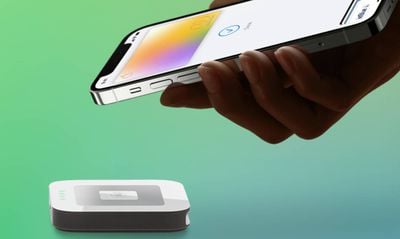The European Union has accepted commitments from Apple to open its mobile payments system and give competitors access to the iPhone’s NFC technology, bringing an end to a lengthy investigation by EU regulators into the technology.
According to the announcement, Apple has agreed to open up its payments system to other providers free of charge for a decade. Apple will let users set a third-party wallet app as their default, rather than its own Apple Wallet. It will also allow rivals full access to key iOS features, such as double click to launch wallet apps, along with Face ID, Touch ID, and passcodes for authentication. From the EU press release:
The commitments bring important changes to how Apple operates in Europe to the benefit of competitors and customers.
First, Apple commits to give access to NFC functionality to third-party mobile wallets. This access will be free of charge.
It will take place in what is called “Host Card Emulation mode”. This is a software solution that allows rival wallets to make secure NFC payments. Apple Pay, on the other hand, relies on access to the hardware “secure element” in the iPhone. We accept Apple’s commitment because it offers an equivalent solution in terms of security and user experience. And it is easier to implement both for Apple and wallet developers. Indeed, other wallets already use this solution in an Android environment.
Second, Apple committed to enable access to important functionalities available on iPhones. This includes Double-Click and Face ID. iPhone users will be able to double-click the side button of their iPhones to launch their preferred payment application. Competing wallets will also be able to use Face ID, Touch ID and passcode to verify users’ identities.
Third, Apple will also enable users to make the wallet of their choice the standard option on their iPhones. This is also known as setting the default option.
These commitments are applicable to users registered in the European Economic Area, including when they travel abroad.
And Apple will not prevent developers from combining NFC payments with other use cases, for instance transit cards, access control, concert tickets, digital identity credentials. Everything that you could have in a wallet.
Apple has until July 25 to implement the changes. The company risks a fine if it violates the agreement, which will remain binding for 10 years.
The European Commission charged Apple in 2022 with violating competition law, contending that Apple was preventing competitors from accessing its near-field communication (NFC) technology to favor Apple Pay. In response to the charges, Apple made a commitment to the European Commission in January to open access to the iPhone’s NFC, allowing competitors to create their own contactless payment solutions outside of the confines of Apple Pay and Apple Wallet.
The settlement means Apple will avoid a potential fine by the EU that could have been as high as 10% of the company’s global annual revenue. Given Apple’s reported revenue of $383 billion in 2023, the fine could have amounted to approximately $40 billion.




